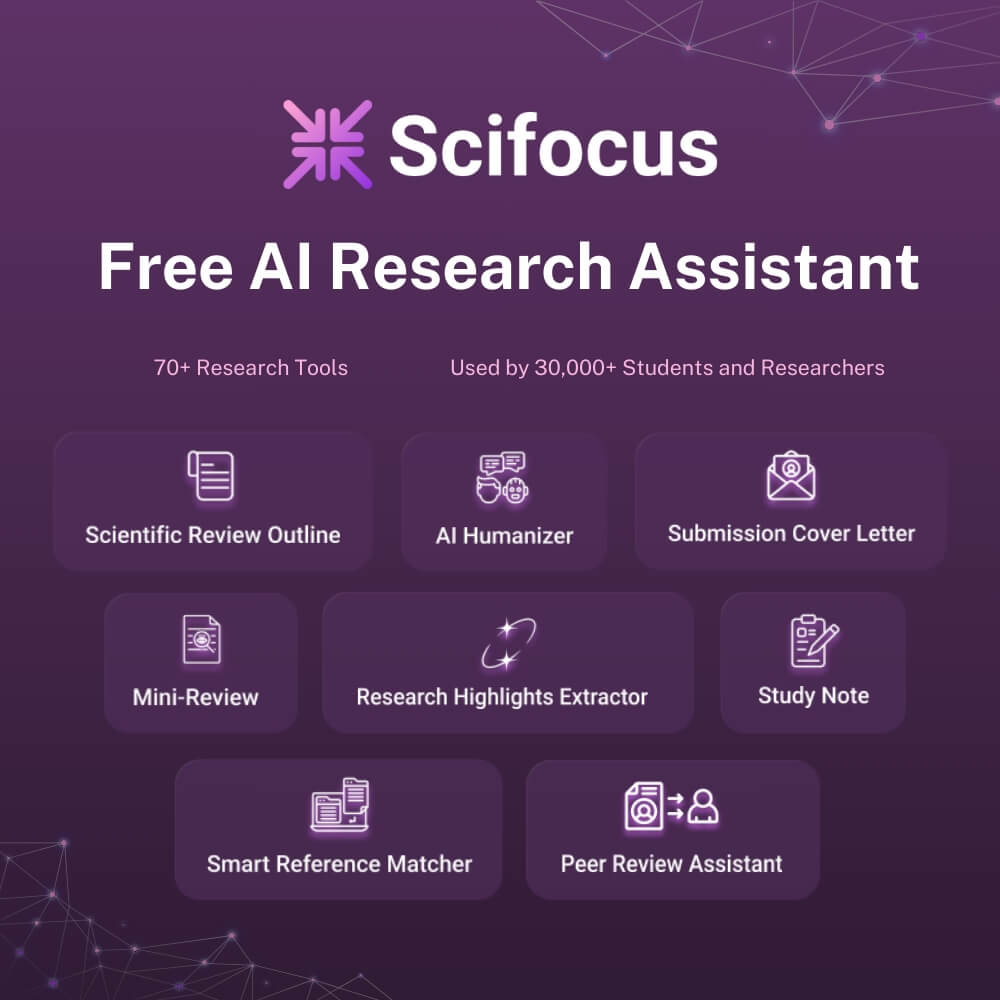College-Level Theoretical Framework Example Guide

Introduction
Ever wondered, “What’s a problem statement?” or “How does a theoretical framework shape academic research?” You’re not alone. Learning to build a theoretical framework is essential for writing strong, structured college-level papers.
From formulating a focused problem statement to selecting the right research methodology, your framework provides direction and depth. In this guide, you’ll find clear examples, actionable writing tips, and insights on how tools like Papergen AI and Scifocus can accelerate your research writing journey — from outline to final draft.
What Is a Theoretical Framework?
A theoretical framework is the intellectual backbone of your research. It highlights the key theories and models that ground your study in scholarly tradition, offering context and justification for your research questions.
It helps readers understand:
- Why your research is necessary
- Which academic theories inform your approach
- How your study addresses gaps in the literature
- The scope and impact of your research
When you develop a framework, it should seamlessly align with your research paper outline, ensuring logical flow from problem statement to conclusions.
Why the Theoretical Framework Matters
A strong theoretical framework:
- Provides academic legitimacy to your study
- Supports your problem statement and research questions
- Guides your research design and methodology
- Shows your engagement with existing literature
Colleges and academic reviewers look for more than just summaries — they want to see that you’ve critically connected your work to existing theories. This deepens your argument and boosts the credibility of your paper.
Example: College-Level Theoretical Framework
Research Topic: How Social Media Influences Academic Performance in College Students
Problem Statement Example:
The rise of social media use among university students may be impacting concentration, GPA, and sleep. Yet, limited research explores how specific engagement patterns relate to academic outcomes in a higher education setting.
Theoretical Framework Example:
- Theory of Planned Behavior (TPB): Assesses how behavioral intent influences time spent on platforms.
- Cognitive Load Theory: Explores how multitasking with social media disrupts focus and learning.
- Social Learning Theory: Investigates how peer habits shape online engagement among students.
This framework informs a mixed-methods approach, including surveys, academic performance tracking, and observational data collection.
How to Write a Strong Problem Statement
Your problem statement is the starting point for your framework. It should:
- Clearly define the central issue
- Identify who is impacted
- Show why the problem matters
- Point to what’s missing in current knowledge
Problem Statement Template Example:
While smartphones are widely used in class, few studies have analyzed their impact on student participation and memory retention. This research aims to uncover how in-class phone use affects learning outcomes.
Use this as a guide to structure your research outline and ensure theoretical alignment.
Structuring Your Theoretical Framework in a Research Paper
Here’s how to embed your theoretical framework into your research paper outline:
Introduction
- Hook
- Background
- Problem Statement
- Research Questions
Literature Review
- Relevant Studies
- Gaps in Research
- Key Theories
Theoretical Framework
- Description of Selected Theories
- Rationale for Selection
- (Optional) Conceptual Diagram
Methodology
- Research Design
- Sampling Methods
- Data Collection & Analysis Strategy
Results & Discussion
- Findings Related to Framework
- Theoretical Interpretations
- Comparison to Existing Literature
Conclusion
- Summary of Key Insights
- Theoretical Contributions
- Recommendations for Future Research
How Papergen AI & Scifocus Can Help You
Writing a theoretical framework doesn’t have to be overwhelming — not when you have smart tools at your fingertips.
With Papergen AI:
- Instantly generate problem statements tailored to your research topic
- Get AI-suggested theoretical models based on your keywords
- Align your methodology with your framework
- Access outline templates for every academic section
- Polish your writing with human-like language refinement tools
With Scifocus:
- Explore over 70+ academic tools made for essay writing and research
- Use free tools like the Essay Topic Generator and AI Humanizer to enhance your writing.
- Search, summarize, and cite literature to build a more solid theoretical base
- Create mind maps and organize arguments visually for complex frameworks
- Ideal for both beginners and students aiming to upgrade academic writing speed and quality
Together, Papergen and Scifocus offer a powerful academic workflow — from brainstorming to submission.
Frequently Asked Questions
Q: How do I choose the right theory for my paper?
A: Review key literature in your field. Pick theories that align with your topic, approach, and research objectives.
Q: Do all papers need a theoretical framework?
A: In most academic fields — especially social sciences, education, and psychology — frameworks are essential to support your study design and thesis.
Q: Can Papergen AI or Scifocus build the whole framework?
A: While they don’t write everything for you, both platforms help you identify relevant models, improve organization, and polish your draft.
Q: How is a theoretical framework different from a conceptual one?
A: A theoretical framework uses established academic theories. A conceptual framework outlines the specific concepts you're examining and their relationships within your study.
Conclusion
Crafting a college-level theoretical framework is a skill that pays off in stronger, more credible research. When combined with a clear problem statement and structured methodology, it lays the groundwork for academic success.
And you don’t have to do it alone.
Papergen AI helps you outline and refine with precision, while Scifocus gives you the tools to explore, write, and structure faster than ever. Whether you're preparing a class assignment or a capstone project, these platforms streamline every stage of the writing process.
👉 Write smarter. Think deeper. Publish better — with Papergen AI and Scifocus.
Explore college-level theoretical framework examples with clear problem statements and research
Did you like this article? Explore a few more related posts.
Start Your Research Journey With Scifocus Today
Create your free Scifocus account today and take your research to the next level. Experience the difference firsthand—your journey to academic excellence starts here.
